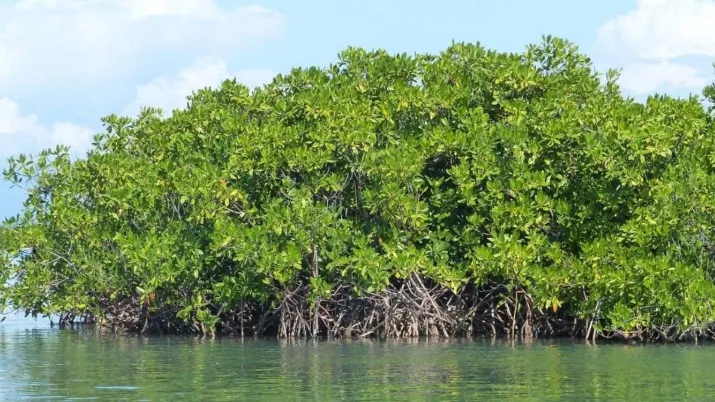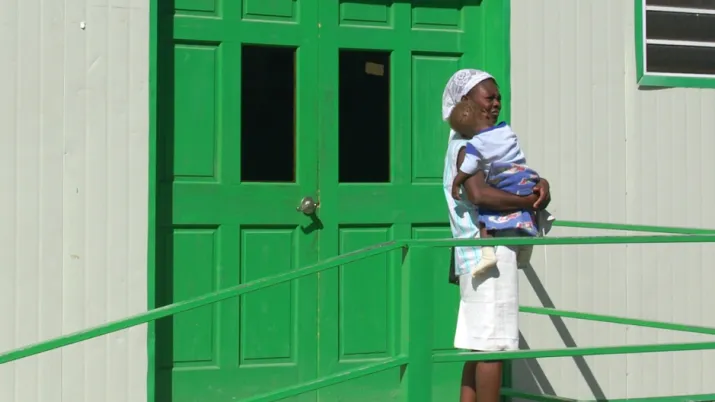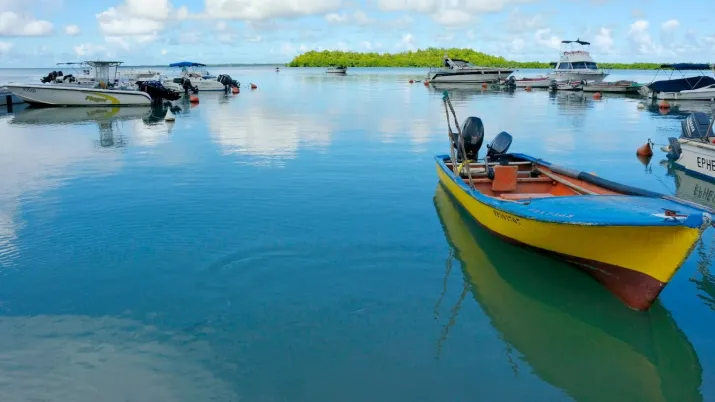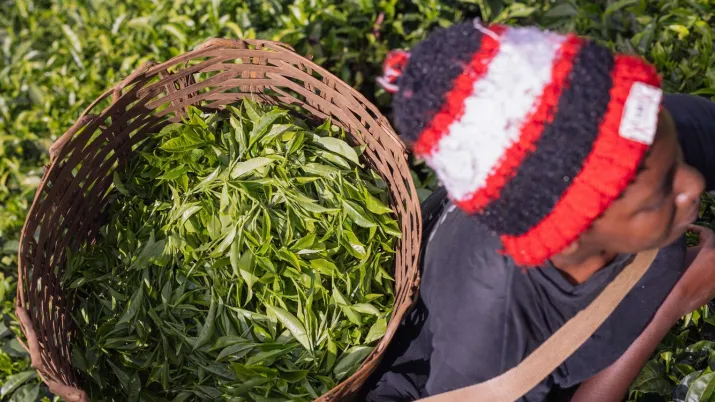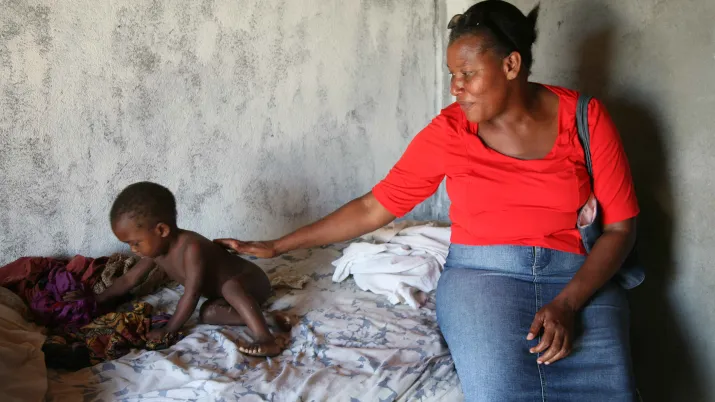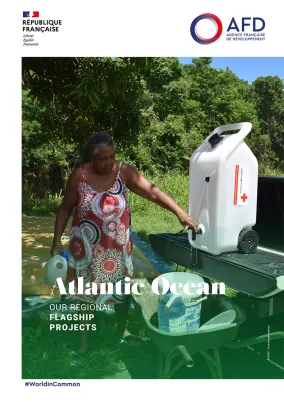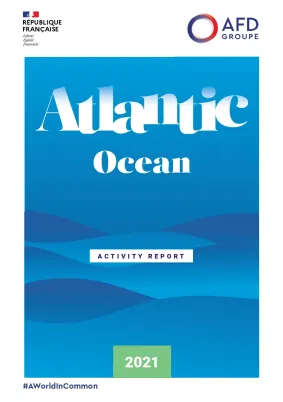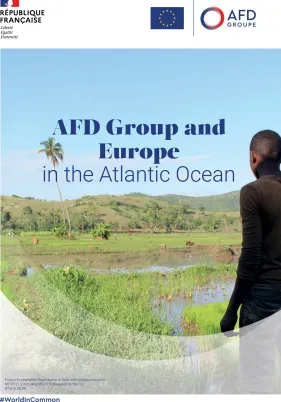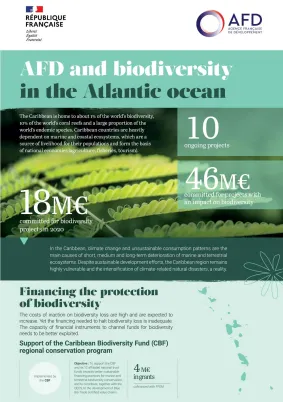Share the page
Haiti
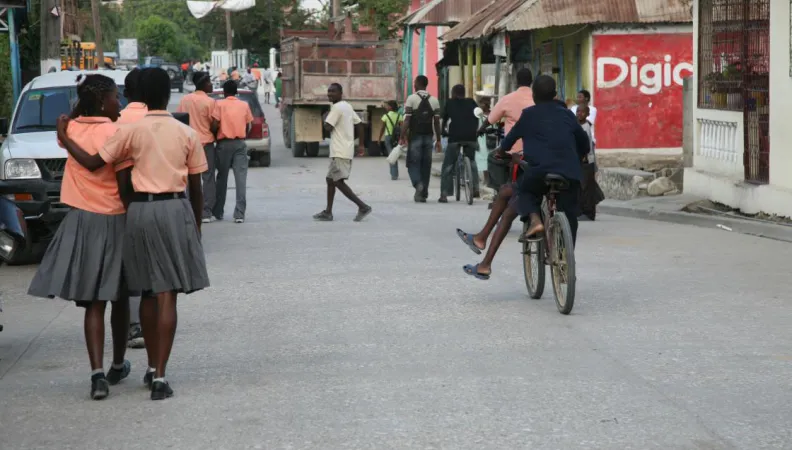
Since 1976, AFD has been working with Haiti in key sectors such as education, agriculture, and health, while gradually expanding its efforts to include governance, civil protection, and the cultural and creative industries.
In a context of chronic fragility, AFD operates in close coordination with technical and financial partners, public authorities, and civil society, with the aim of contributing to human security and strengthening the resilience of institutions, communities, and territories.
Since 2022, the activities of its technical cooperation subsidiary, Expertise France, have expanded significantly. Its country office, established in 2024, now manages a portfolio of nine projects totaling €95 million in financing.
Context
Haiti, located at the heart of the Greater Antilles, shares the island of Hispaniola with the Dominican Republic. Positioned along the path of tropical storms and at the intersection of seismic fault lines, the country is among the most exposed to natural hazards and the effects of climate change. The 2010 earthquake, Hurricane Matthew in 2016, and the major earthquake of August 14, 2021, have all underscored the extent of this vulnerability.
With a population of 11.8 million, one-third of whom are under the age of 15, Haiti is the only country in the Americas classified among the least developed countries. Its Human Development Index stood at 0.554 in 2023 (166th out of 193 countries), and persistently high poverty levels reflect deep-rooted socioeconomic challenges. Political instability, gang violence, and institutional fragility continue to limit access to basic services and employment. More than half of the population is currently in need of humanitarian assistance.
A partner of Haiti since 1976, AFD primarily provides grant funding for projects implemented by public authorities and civil society. These focus on education and vocational training, health, the environment, agriculture, and rural development, with a strong emphasis on climate change adaptation and territorial resilience. More recently, AFD has expanded its activities to include governance, civil protection, and the cultural and creative industries.
AFD supports both central and local administrations in strengthening governance, while also backing initiatives led by civil society organizations and the private sector (through Proparco). These efforts aim to preserve public capacity and generate socioeconomic opportunities that benefit communities and territories.
AFD’s Haiti office is part of the Atlantic Ocean Regional Directorate.
Our approach
"AFD Group in Haiti: strengthening essential services in times of crisis"
In response to the challenges of quality and governance in Haiti’s education system, AFD has made a long-term commitment to supporting the Ministry of National Education and Vocational Training (MENFP). Since 2018, through the NECTAR project (€8 million), the agency has been contributing to improving the quality of education by supporting curriculum reform for the third cycle of basic education, revising upper secondary programs, and strengthening MENFP’s institutional capacities.
AFD Group’s support for quality education has been further reinforced through the Avni Nou project (€12 million), implemented by Expertise France. The agency also operates the Edikasyon pou viv ansanm project, co-financed by the European Union (€5.7 million), in partnership with three training providers and six civil society organizations.
In addition, between 2015 and 2024, AFD financed vocational training reform through two grants to the National Institute for Vocational Training.
AFD has long been active in the agricultural sector, supporting production, the development of agroforestry, and the integrated management of watershed areas.
From 2012 to 2019, with support from the European Union, AFD financed the Food Security Project (SECAL) with €21 million. The project rehabilitated the Avezac irrigation perimeter in the Cayes Plain and strengthened several agricultural value chains in the South, West, and Artibonite regions.
Building on the results of SECAL, the Irrigation Support Project in the South (€13 million) now contributes to increasing farmers’ incomes by improving access to water and its use for agriculture. AFD also funds the LEVEKAFE project (€15 million), which aims to boost the resilience of family farming systems through the development of economically and environmentally sustainable agroforestry systems.
Since 2021, AFD has also supported the Haitian Biodiversity Fund (FHB) with €11 million in financing, including €10 million allocated to an endowment fund. This flexible tool is designed to provide long-term financing for biodiversity conservation in the country.
In 2023, through Expertise France, AFD Group expanded its activities to food security as part of a co-financing agreement with the European Union for Phase 2 of the Multisectoral Food and Nutrition Security Support Program (PMSAN II).
AFD’s work in the health sector focuses on improving access to care, strengthening the capacity of healthcare personnel, and enhancing health governance.
AFD’s efforts in maternal and child health, particularly through the TIMAMA project (€19.95 million across its three phases), contribute to strengthening Haiti’s health system and respond to the priorities of the Ministry of Public Health.
Between 2019 and 2022, in the context of the COVID-19 crisis and the resurgence of cholera, AFD provided several forms of support for epidemic response in the country, totaling €10 million.
From 2012 to 2025, the agency also took part in the reconstruction project for the State University Hospital of Haiti, with €42.5 million in financing. This initiative was carried out in partnership with the United States Agency for International Development (USAID, $35 million) and the Government of Haiti ($23 million). Unfortunately, the project was suspended due to ongoing security conditions.
In 2022, AFD financed a cultural project in Haiti. With a total amount of €3 M, Tanbou supports structuring the Cultural and Creative Industries (CCIs) sector in Haiti. It achieves this through creating a new cultural space: the Fabrique des Arts, professionalization for Haitian artists and cultural operators and promoting the heritage of the Art Center. In supporting structuring CCIs, Tanbou aims to contribute to socioeconomic development (for young people and women in particular), the professional integration of those benefiting from it, and profitability of their economic activities. In addition, the project aims to support rebuilding social connections, strengthening civil society, including young people and promoting gender equality.
In the field
News & Press Releases
Publications & Media
Key figures
-
18 projects in progress amounting to €125.96 M
-
23 projects initiated by CSOs, currently being implemented for €12 M
-
9 projects operated by Expertise France for a total amount of French and European and USAID-delegated financing of €95 M

